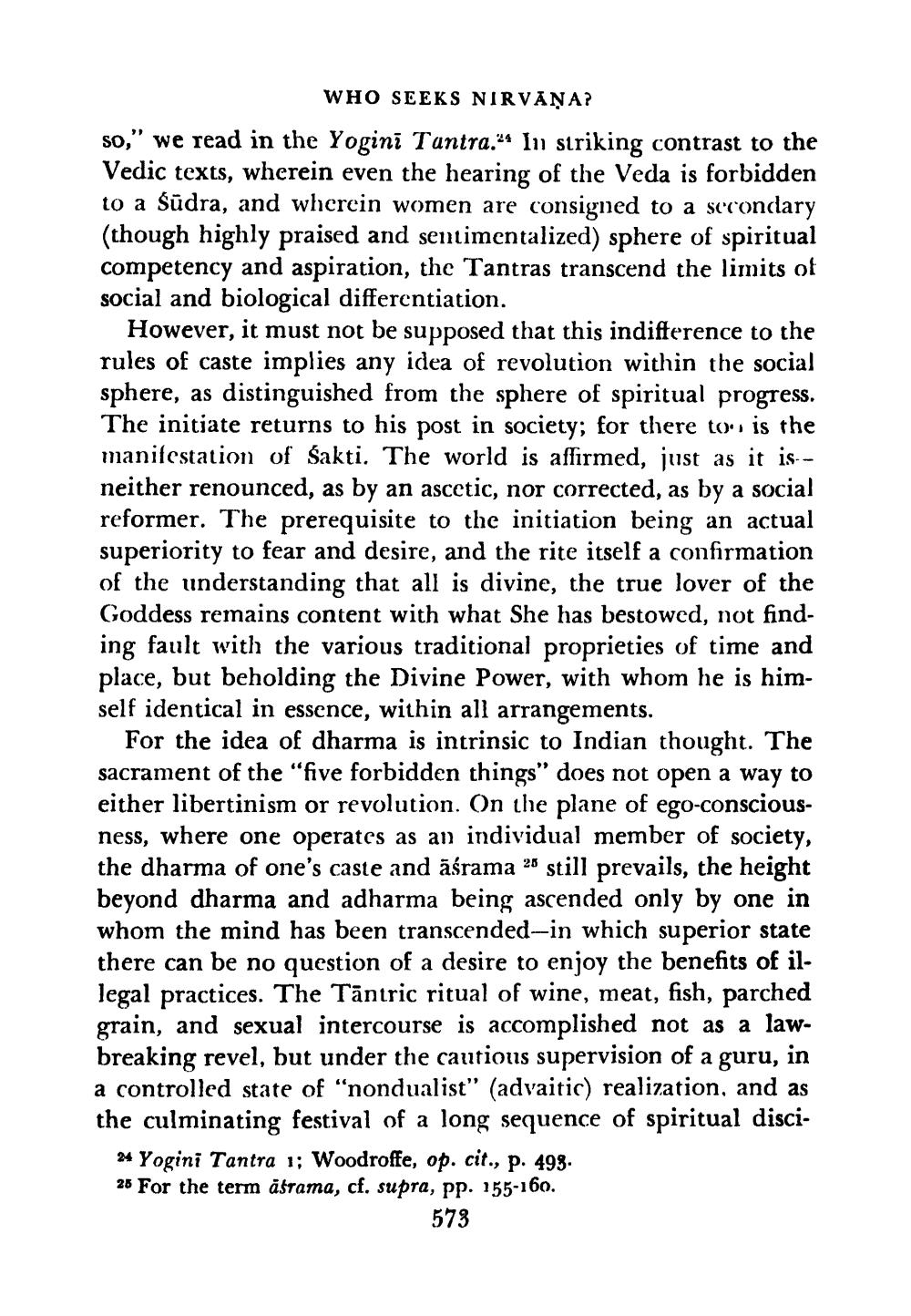________________
WHO SEEKS NIRVANA? so," we read in the Yogini Tantra.24 In striking contrast to the Vedic texts, wherein even the hearing of the Veda is forbidden to a Sūdra, and wherein women are consigned to a secondary (though highly praised and sentimentalized) sphere of spiritual competency and aspiration, the Tantras transcend the limits of social and biological differentiation.
However, it must not be supposed that this indifference to the rules of caste implies any idea of revolution within the social sphere, as distinguished from the sphere of spiritual progress. The initiate returns to his post in society; for there too, is the manifestation of Sakti. The world is affirmed, just as it is - neither renounced, as by an ascetic, nor corrected, as by a social reformer. The prerequisite to the initiation being an actual superiority to fear and desire, and the rite itself a confirmation of the understanding that all is divine, the true lover of the Goddess remains content with what She has bestowed, not finding fault with the various traditional proprieties of time and place, but beholding the Divine Power, with whom he is himself identical in essence, within all arrangements.
For the idea of dharma is intrinsic to Indian thought. The sacrament of the "five forbidden things" does not open a way to either libertinism or revolution. On the plane of ego-consciousness, where one operates as an individual member of society, the dharma of one's caste and āśrama 20 still prevails, the height beyond dharma and adharma being ascended only by one in whom the mind has been transcended-in which superior state there can be no question of a desire to enjoy the benefits of illegal practices. The Tāntric ritual of wine, meat, fish, parched grain, and sexual intercourse is accomplished not as a lawbreaking revel, but under the cautious supervision of a guru, in a controlled state of “nondualist" (advaitic) realization, and as the culminating festival of a long sequence of spiritual disci
* Yogini Tantra 1; Woodroffe, op. cit., p. 498. 28 For the term asrama, cf. supra, pp. 155-160.
573




